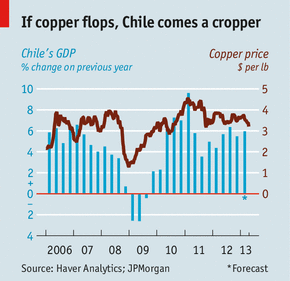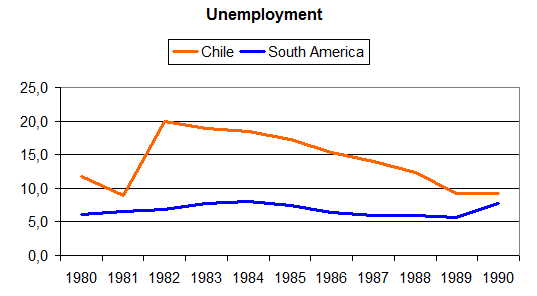Why Disintervention Fails The Flaws
Interventionism is distortive, disruptive, and potentially socially destructive because it attempts to defy the criticisms and possibilities of centralized planning according to the market process view of the dynamic market. Yet disintervention
faces the same problems. When disintervening, political actors
with necessarily limited information and knowledge must somehow decide, not only what to liberalize, but how and when. It is perhaps these latter considerations which are the truly crucial elements for successful disintervention. "Crude" disinterventionism enacted without understanding the complex interactions that occur between an intervention, other interventions, and the dynamic market process may very well lead to cascading negative unintended consequences. Deregulation
in the one sector, let's say housing, might lead to bottlenecks in another complementary (or even seemingly disparate) sector, say in finance,
which might cascade into other areas in unpredictable ways.
To better assert this point I offer the following: not all interventions are created equally. I say this to emphasize the fact that not all acts of government interference with the economy can be equally harmful, even according to the most stringent anarcho-libertarian standards.
A price floor that falls below the current market rate is not as harmful as the price ceiling that (attempts) to cut the price of a product in half from its going market rate. There also exists the possibility that there may even be less obvious interventions that are unintentionally "beneficial" relative to others given the uncoordinated nature of the interventionist system. Likewise, even many free-market economists would agree that if a banking system must rest upon a "lender of last resort" with its subsequent moral hazard, then some regulatory framework preventing the to-be-expected excessive risk-taking may be justified or necessary
in the meantime, even if the longer-run disinterventionist goal is a free market banking system.
The mixed economy often also contains entire markets built on the backs of previously distorted market processes. The wholly superfluous market process emerges where
opportunities for profit would otherwise never have existed outside of the influence of interventionism (Kirzner 1985). In the real world this can mean
entire industries built on the shaky grounds of government intervention. Though due to a lack of unencumbered price signals, few if any might be able to realize this. Thus there also exists the chance that by liberalizing one sector, or removing one control,
that a large collapse may be unleashed and backfire in the face of the disinterventionists harming the political capital necessary to continue with any necessary disinterventions.
All this leaves the question of
which ones are perhaps justified in the mean time in order to prevent further harm by "holding back" other interventions?
How is a planner with their limited knowledge supposed to be able to tell the difference?
Lastly how can these two answers explain in
what order to disintervene?
The policy problem I have presented - in the form of entrenched and overlapping, uncoordinated interventions - is one of organized complexity. Even presupposing that the number of interventions is set at point m, what still remains is a complex series of interlocking problems with no clear solution available to anyone guiding the disintervention. Of course I am describing the knowledge problem, traced along its implications for the possibility of (dis)interventionist coordination. Yet it must also be remembered that the knowledge problem is overcome everyday by the market process acting through the price system. Even if the planners understand this insight, they must still ask themselves: "So in a mixed economy, even one completely distorted by rampant intervention, why can't piecemeal disintervention of markets be relied upon to provide the intended results?"
The disinterventionist planner may note that the market tends towards self-correction, and that surely if he just lets the market work,
then this problem will sort itself out on its own. While a free market would have the mechanism of the discovery process, guided by profit and loss, for realizing the most socially beneficial ends from available means, interventionism lacks this mechanism in any true spontaneous form. If a disinterventionist plans to liberalize successfully they must decide at some point what to disintervene, when (in what order), and how. Markets are spontaneous orders lacking any centralized direction, made possible by the institutional settings that shape their incentive structures and guide the market process towards socially beneficial ends. So whereas
the market process encourages decentralized entrepreneurs to utilize their particular knowledge of the time and place to drive the market towards self-correction and satisfaction of consumers' wants,
the command economy - and any decision making in this vein such as (dis)interventionism - lacks the institutions and incentives required to drive a spontaneous process embodying society's dispersed knowledge. In a sentence then, interventionism - and its mirror lacks a spontaneous discovery process for
systematically uncovering and incentivizing the correction of its past errors to the benefit of society. Disinterventionism as a policy necessarily confronts the knowledge problem, but this by itself is not enough to sink the mainstream "crude" disinterventionist position. After all, markets and the price system routinely overcome this problem everyday and do so remarkably well. Yet the more specific point I am arguing is that
there is no tendency in piecemeal disintervention
to successfully liberalize
via correctly discovering the proper order, rate,
or even what and where to disintervene.





 Reply With Quote
Reply With Quote
 But I'll gladly vote human rights over economics if the difference in economics is very minimal but the difference in regards to human rights is vast.
But I'll gladly vote human rights over economics if the difference in economics is very minimal but the difference in regards to human rights is vast.









Connect With Us